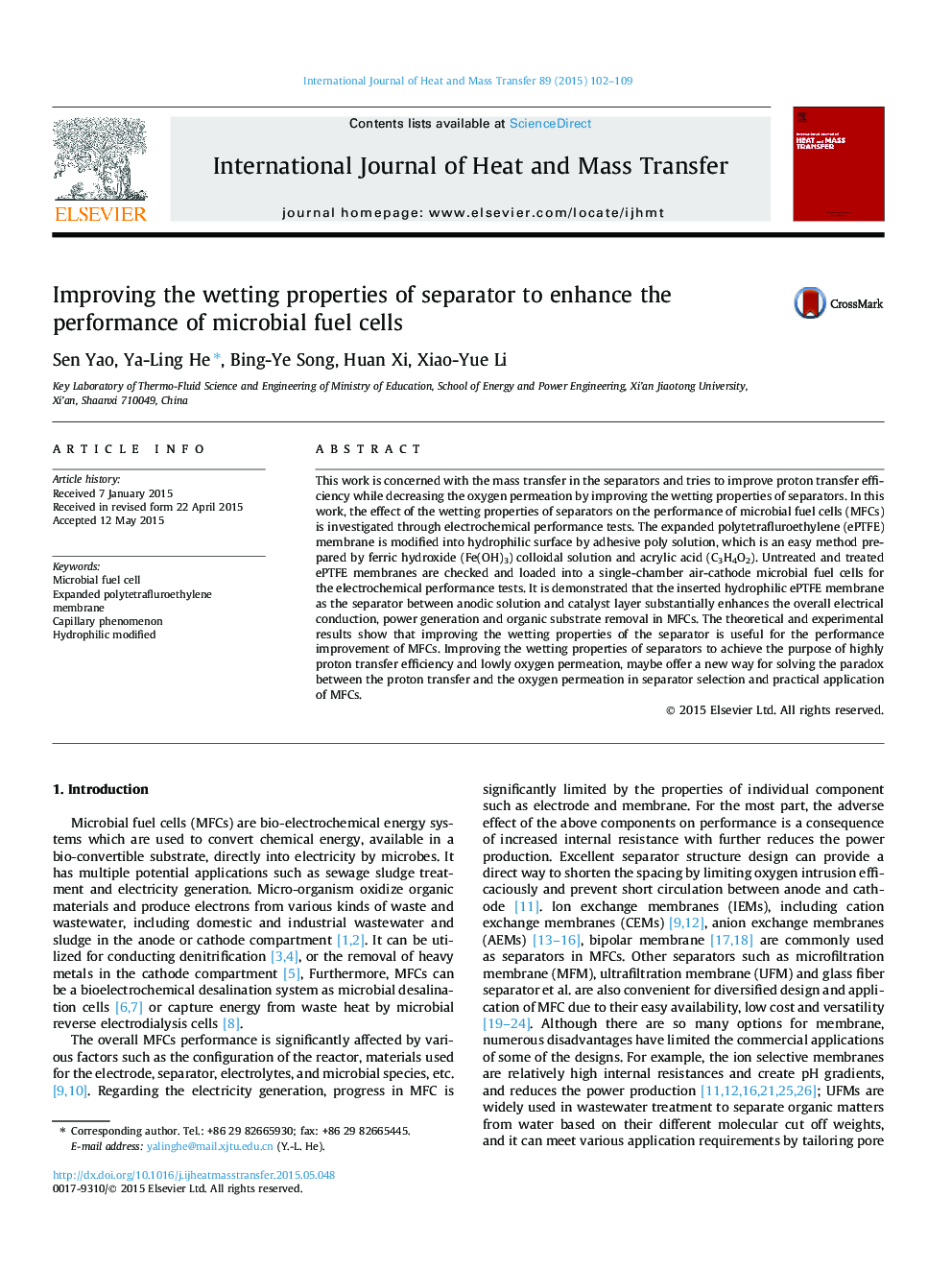| Article ID | Journal | Published Year | Pages | File Type |
|---|---|---|---|---|
| 7056510 | International Journal of Heat and Mass Transfer | 2015 | 8 Pages |
Abstract
This work is concerned with the mass transfer in the separators and tries to improve proton transfer efficiency while decreasing the oxygen permeation by improving the wetting properties of separators. In this work, the effect of the wetting properties of separators on the performance of microbial fuel cells (MFCs) is investigated through electrochemical performance tests. The expanded polytetrafluroethylene (ePTFE) membrane is modified into hydrophilic surface by adhesive poly solution, which is an easy method prepared by ferric hydroxide (Fe(OH)3) colloidal solution and acrylic acid (C3H4O2). Untreated and treated ePTFE membranes are checked and loaded into a single-chamber air-cathode microbial fuel cells for the electrochemical performance tests. It is demonstrated that the inserted hydrophilic ePTFE membrane as the separator between anodic solution and catalyst layer substantially enhances the overall electrical conduction, power generation and organic substrate removal in MFCs. The theoretical and experimental results show that improving the wetting properties of the separator is useful for the performance improvement of MFCs. Improving the wetting properties of separators to achieve the purpose of highly proton transfer efficiency and lowly oxygen permeation, maybe offer a new way for solving the paradox between the proton transfer and the oxygen permeation in separator selection and practical application of MFCs.
Keywords
Related Topics
Physical Sciences and Engineering
Chemical Engineering
Fluid Flow and Transfer Processes
Authors
Sen Yao, Ya-Ling He, Bing-Ye Song, Huan Xi, Xiao-Yue Li,
